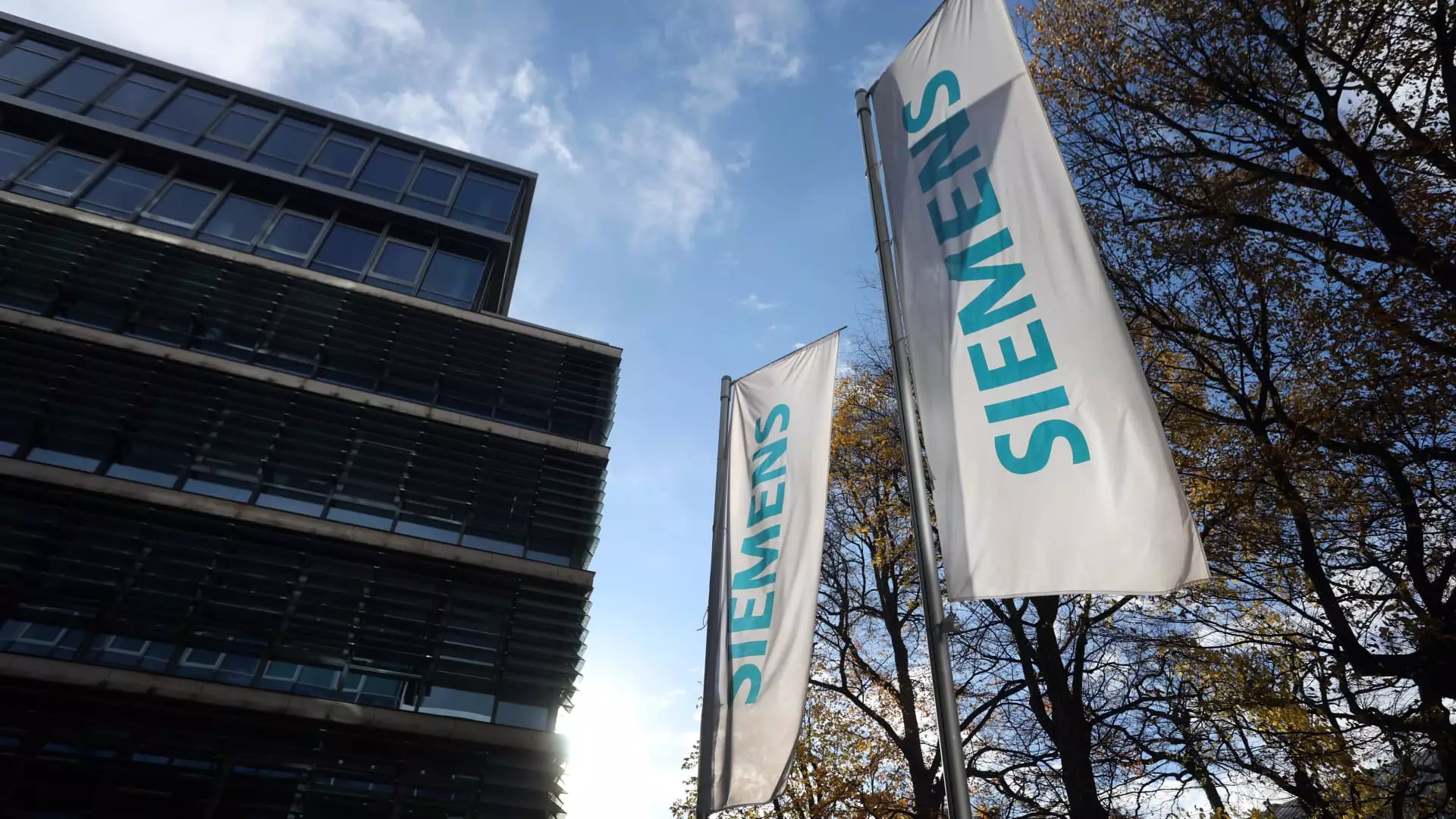German technology giant Siemens recently disclosed a decrease in profit at its industrial business during the fiscal second quarter. The company reported that its industrial profit amounted to 2.51 billion euro ($2.73 billion) in the three months ending in March, representing a 2% decline from the same period last year. This figure fell short of the company-compiled analyst forecast of 2.68 billion euro as reported by Reuters. Furthermore, net income dropped to 2.2 billion euro in the three-month period, a 38% decrease compared to the previous year. Sales also experienced a 1% decline, reaching 19.16 billion euro. Following these revelations, Siemens stocks were observed to be 1.88% lower at 8:18 a.m. London time on Thursday.
Siemens, renowned for its focus on automation and digitalization, caters to a variety of sectors including transport and healthcare leveraging cutting-edge technology. The company noted a slowdown in its automation division, which forms a part of its digital industries business. CEO Roland Busch acknowledged the division’s decline, stating, “We see a decline of minus 20%. However, you have to see that against the backdrop of a record-high prior quarter and you see still a weakness in the Chinese market, so overall there are no structural reasons for that.” Despite challenges, Busch maintained a positive outlook on the quarter overall, describing it as “solid.” He emphasized that the demand for Siemens’ products remains strong, with growth drivers such as digitalization and sustainability fully intact.
Busch highlighted a significant surge in demand for automation in recent years, leading to elevated stock levels. However, efforts to reduce these stock levels are ongoing and encountering a “destocking effect,” which is taking time to resolve. He explained, “It takes a little bit longer because of the demand is not that high and we are reducing the stock as we go.” The lower demand in China was attributed to weaker private consumption, slower exports, and reduced direct investment in the country. Despite these challenges, Busch expressed confidence in China’s eventual recovery, stating that there was “no doubt” that China would rebound in due course.
Siemens’ financial performance in the fiscal second quarter reflected declining profits in its industrial business. The company’s automation division faced challenges amid a sluggish Chinese market, although the CEO remained optimistic about the overall outlook. As Siemens continues to navigate market dynamics and adapt to changing demands, it remains to be seen how the company will address these obstacles and drive future growth.


Leave a Reply